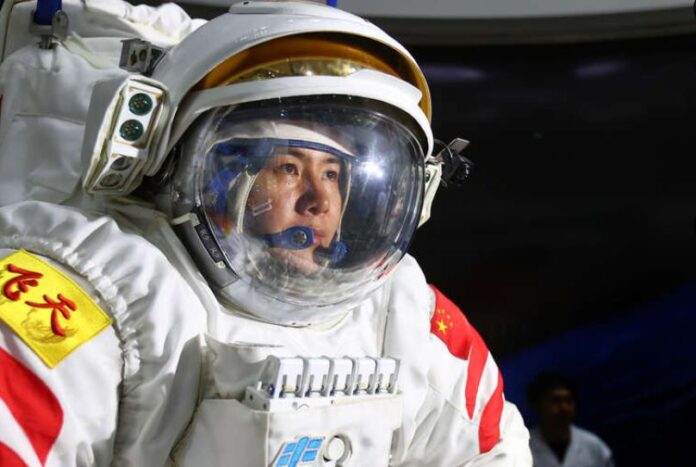In a significant advancement for China’s space program, the country’s only female spaceflight engineer, Wang Haoze, will be part of a three-member astronaut crew embarking on the Shenzhou-19 mission to the Tiangong space station. The launch is scheduled for 4:27 AM on Wednesday (2027 GMT Tuesday) from the Jiuquan Satellite Launch Center in northwest China.

Wang, 34, will become the third Chinese woman to participate in a crewed space mission. At a media event on Tuesday, she expressed her excitement, stating, “Like everyone else, I dream of going to the space station to have a look. I want to meticulously complete each task and protect our home in space. I also want to travel in deep space and wave at the stars.”

The Shenzhou-19 crew, which also includes experienced astronaut Cai Xuzhe and Song Lingdong, is expected to return to Earth in late April or early May 2024. Cai, a 48-year-old former air force pilot who previously served aboard Tiangong during the Shenzhou-14 mission in 2022, emphasized the gravity of their mission, saying, “I feel the honour of my mission with a great responsibility.”

The mission aligns with China’s ambitious plans to achieve its “space dream” under President Xi Jinping, which includes landing astronauts on the Moon by 2030 and constructing a lunar base. The Tiangong space station, currently hosting a separate crew, is a key component of these efforts.

During their time aboard Tiangong, the Shenzhou-19 crew will conduct various experiments, including testing “bricks” made from materials mimicking lunar soil. These components, set to arrive via the Tianzhou-8 cargo ship in November, will be evaluated under extreme conditions to assess their potential for use in lunar construction.

Jonathan McDowell, an astronomer at the Harvard-Smithsonian Center for Astrophysics, noted that while this mission may not lead to groundbreaking discoveries, it is crucial for accumulating experience as China continues to invest billions into developing a space program that competes with those of the United States and Europe.
China’s space achievements include landing the Chang’e-4 probe on the Moon’s far side in 2019 and deploying a robot on Mars in 2021. The Tiangong space station, operational since 2021, is expected to serve for approximately a decade, facilitating ongoing research and international collaboration in space exploration.
Key Points:
- Mission Overview: China’s Shenzhou-19 mission will launch on Wednesday at 4:27 AM (2027 GMT Tuesday) from the Jiuquan Satellite Launch Center, featuring a crew of three astronauts, including Wang Haoze, the country’s only female spaceflight engineer.
- Historic Participation: Wang Haoze, 34, will become the third Chinese woman to participate in a crewed mission, expressing her enthusiasm for the journey and her commitment to completing tasks in space.
- Crew Composition: The crew includes experienced astronaut Cai Xuzhe, 48, who previously participated in the Shenzhou-14 mission, and Song Lingdong, also 34. They are expected to return to Earth in late April or early May 2024.
- Research Goals: The astronauts will conduct experiments, including testing materials that simulate lunar soil to assess their viability for future lunar construction.
- China’s Space Ambitions: This mission is part of China’s broader goal to achieve a crewed Moon landing by 2030 and build a lunar base, as outlined by President Xi Jinping.
- Tiangong Space Station: Currently hosting another crew, Tiangong is central to China’s space program and is designed to operate for about 10 years.
- Investment in Space: China has invested heavily in its space program, aiming to compete with the United States and Europe, with notable achievements including the Chang’e-4 lunar probe and a Mars rover landing.



